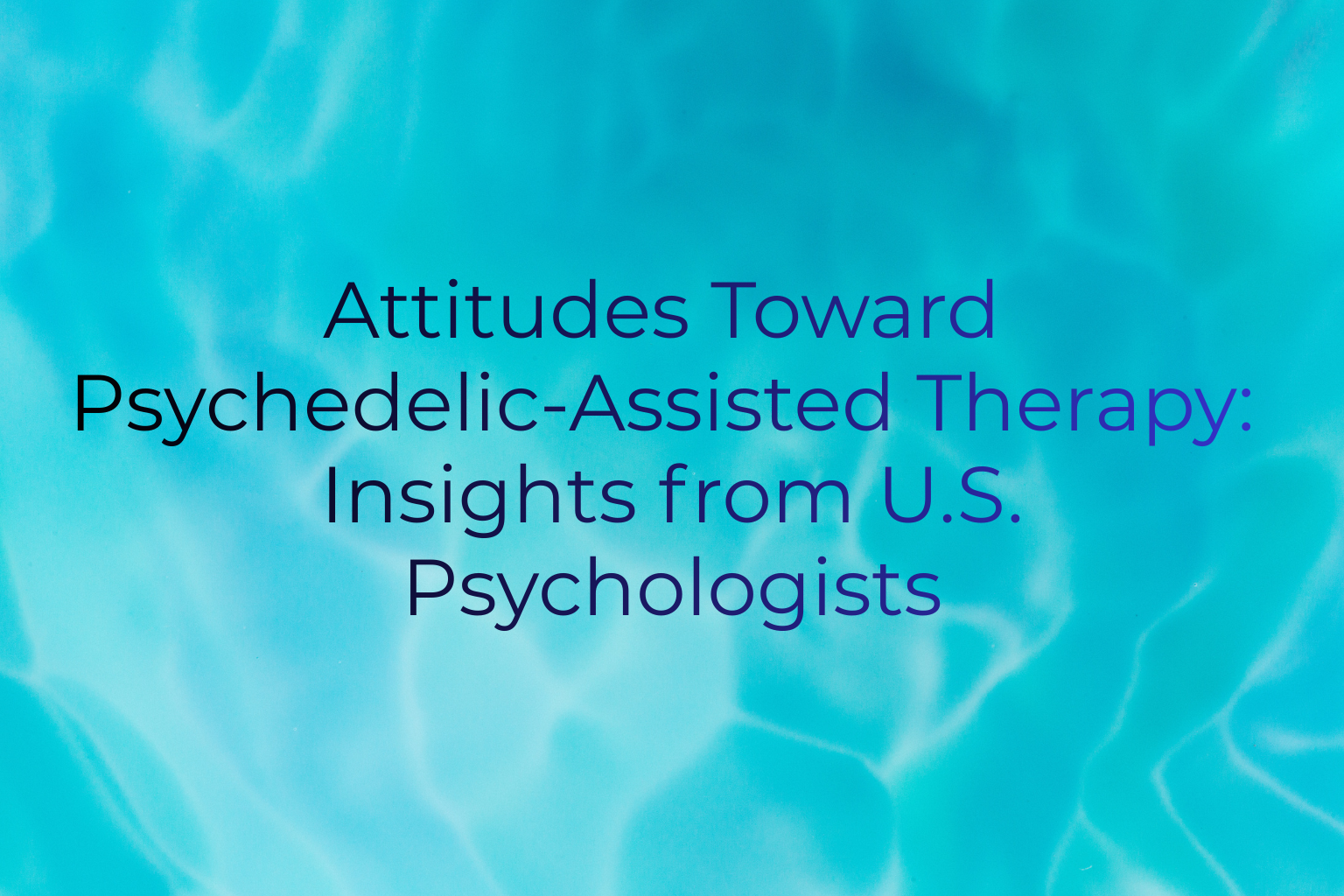
New Study Compares Attitudes Toward Psychedelic Therapy Across Mental Health Disciplines

Attitudes Toward Psychedelic-Assisted Therapy: Insights from U.S. Psychologists

A Structured Approach to Psychedelic Therapy: Combining MDMA and ACT for PTSD

Exploring MDMA-Assisted Therapy for Social Anxiety Disorder: A Promising New Approach

The Healing Power of Self-Compassion: New Insights from MDMA-Assisted Therapy Research
Psychedelic-assisted therapy (PAT) has garnered significant attention in recent years for its potential to treat a range of mental health conditions, particularly depression. As research continues to explore the mechanisms behind these therapies, the Psychological Flexibility Model (PFM) has emerged as a promising framework to support and enhance the therapeutic process.

The Psychological Flexibility Model: Enhancing Psychedelic-Assisted Therapy
Psychedelic-assisted therapy (PAT) has garnered significant attention in recent years for its potential to treat a range of mental health conditions, particularly depression. As research continues to explore the mechanisms behind these therapies, the Psychological Flexibility Model (PFM) has emerged as a promising framework to support and enhance the therapeutic process.

Unpacking the Potential of MDMA-Assisted Therapy for Social Anxiety Disorder
Recent research suggests that MDMA-assisted therapy (MDMA-AT) might offer a novel and effective treatment for those struggling with social anxiety. A team of researchers, including Jason Luoma PhD, Kati Lear PhD, and Brian Pilecki PhD from Portland Psychotherapy, explores the potential processes of change in MDMA-AT for SAD in a comprehensive review.

New Study Compares Attitudes Toward Psychedelic Therapy Across Mental Health Disciplines
As the field of psychedelic-assisted therapy (PAT) continues to grow, it is essential to understand how different mental health professionals perceive this emerging treatment modality. A recent study coauthored by Portland Insitute of Psychedelic Science’s (PIPS) Jason Luoma, Ph.D. and Brian Pilecki, Ph.D., sheds light on the varied attitudes and beliefs held by social workers, psychologists, and psychiatrists in the United States regarding PAT.

Attitudes Toward Psychedelic-Assisted Therapy: Insights from U.S. Psychologists
Psychedelic-assisted therapy (PAT) is gaining momentum as a promising approach for treating various mental health conditions, from depression to substance use disorders. However, as the field of psychedelic research expands, it is crucial to understand the perspectives of those who may be at the forefront of implementing these treatments: clinical psychologists.

The Importance of Touch in MDMA-Assisted Therapy: Insights from Recent Research
MDMA-assisted therapy (MDMA-AT) appears to be on the way to becoming a legally recognized treatment for conditions such as post-traumatic stress disorder (PTSD). Researchers are diving deeper into understanding the nuances of this therapeutic approach, including the role of physical touch in therapy sessions.

The Role of Group-Administered Psilocybin in Enhancing Psychological Flexibility
As the field of psychedelic-assisted therapy (PAT) continues to evolve, researchers are increasingly interested in understanding the underlying processes that contribute to its therapeutic effects. A recent pilot study conducted by a team of researchers from Portland Psychotherapy, including Brian Pilecki, Ph.D., and Jason Luoma, Ph.D., provides valuable insights into how psilocybin, administered in a group setting, influences psychological flexibility—a core concept in mental health and behavioral change.

The Therapeutic Potential of Psilocybin: Current Research and Future Possibilities
Psilocybin, a compound found in certain mushroom species, has been used in traditional practices for centuries. In recent decades, scientific interest in its therapeutic potential has surged, with prestigious research institutions conducting rigorous studies to understand its possible benefits for various mental health conditions.

Understanding Psilocybin Service Centers: Oregon's New Frontier in Psychedelic Services
As Oregon pioneers the first state-regulated psilocybin program in the United States, psilocybin service centers are emerging as essential spaces for supported adult use of psilocybin. Understanding what these centers are—and aren't—is crucial for anyone considering psilocybin services.

Understanding the Role of Psilocybin Facilitators in Oregon's Legal Framework
Oregon made history by becoming the first U.S. state to legalize supported adult use of psilocybin. As this groundbreaking program unfolds, it's crucial to understand the role of psilocybin facilitators—the professionals at the heart of these services.

Navigating the Complex Legal Landscape of Psilocybin in Oregon and Beyond
The conversation around psilocybin is evolving rapidly. Understanding the current legal framework is crucial for anyone interested in accessing psilocybin services safely and legally.

Safety First: Understanding Risk Factors and Assessment for Psilocybin Services
When considering psilocybin services in Oregon, safety should always be the top priority. At the Portland Institute for Psychedelic Science (PIPS), we've developed a comprehensive assessment process to help ensure our clients' safety and well-being.
